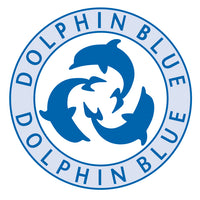I personally conducted the very first public recycling event in Dallas in 1992, collecting and bagging 350 50-gallon bags of recyclables. After all that work, I had no success finding a place to accept the materials. That's when I learned Recycling Economics 101: When we purchase products made from materials we place in bins, recycling works. When nobody is buying products made with post-consumer recycled (PCR) material, recycling fails miserably.
I founded my company, Dolphin Blue, in 1994 to offer post-consumer recycled office supplies and help close the loop - until we complete the process of purchasing products made from the things we place in the recycling bins, we're allowing the continued increase in landfill waste, resource depletion, and loss of natural habitat for our fellow species.
Spurred to Action
I began thinking about what I could do to protect our planet when I returned to visit my birth home in Fenton, Missouri. It was between 1982 and 1987 when I started hearing stories about young women, with whom I had gone to high school, having inordinate numbers of babies with birth defects.
What was causing these defects? In the years following the Vietnam War, the valley in which I had grown up was being used as a dumping ground for both PCB-laden and dioxin-containing waste oil. The county roads were being coated with the contaminated oil, hauled from service stations' waste motor oil bays. The haulers, hired by corrupt county officials, openly and regularly dumped the contaminated waste oils on our unpaved county roads. The dust from the roads floated freely throughout the valley.
Knowing that this type of negligent and irresponsible behavior was possible, I began formulating a way that I could somehow counter the damage being done by these ruthless practices.
After 1993's devastating floods along the Mississippi River, I became determined that any company I ran would do business in a manner that could only function under triple bottom line principles (that is, people, planet, and profit).
The Health and Economic Sense (and Cents) of It All
While the idea of post-consumer recycled content is pretty popular now, it wasn't always at the forefront of consumers' minds back in the early 1990s. Needless to say, building Dolphin Blue into a successful business wasn't easy. I persisted, though, because the cause is so dear to me. The value of reusing post-consumer materials doesn't so much stem from the use of the materials themselves; instead, it stems more from all those raw, natural resources that are preserved because they don't need to be mined or cut down or otherwise taken out of their habitat to create something new for humans.
Although we economically measure most everything we produce and consume in our country and world, we fail to measure the value a forest brings to our human existence. Mature disease- and insect-resistant trees, left in healthy forest settings, provide oxygen we breathe; prevent erosion, which reduces the incidence of flooding; and sequester carbon dioxide, a greenhouse gas that is currently at such a critical saturation point in our atmosphere that it will cause catastrophic damage if not soon reduced.
It takes as much as 95 percent less energy to produce new products from PCR materials, as opposed to using raw materials to make the same product. Saving energy means using significantly less oil, coal, or natural gas. We see all around us the environmental effects and human health effects of our continual reliance on fossil fuels. As we save energy, we reduce toxins entering the air we breathe and the water we drink. Recovering post-consumer waste materials, then reusing these materials in production of new goods, improves human health and preserves natural resources for us, our fellow planet inhabitants, and future generations. From a financial standpoint, we can see reduction in insurance premiums and in property damage (remember Hurricane Katrina?).
Even for those who don't champion the environment, it just makes good sense to protect it via the practice of purchasing products made with post-consumer recycled content wherever possible.
Continuing the Work
I do believe in protecting the environment, and fortunately, I'm not alone. Today, when there are recycling events, it's not difficult to find someone to take those materials. Much has changed in the 20 years since I began my business, although we still have so much more to do. I'll continue to work to help people - like those women I grew up with, who didn't deserve the toxic environment their children were born into - to understand just how important post-consumer recycled content is for our health, for our economy, for our planet, and for humanity.
Tom Kemper is the founder of Dolphin Blue, a company founded in 1993 on the belief that we can all be responsible in what we use. Dolphin Blue sells the most environmentally responsible home, family, pet, office, and business products available. \
